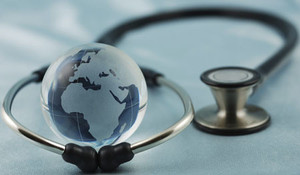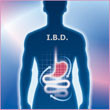Regulatory systems for drug approval aim to reduce the likelihood of drug-related safety problems, but cannot fully eliminate post-marketing safety events. Such safety problems can have substantial consequences for patient’s well-being. For example, the most severe class of recalls issued by the US Food and Drug Administration (FDA) occur about once per month, and have recently been increasing in frequency [1]. Post-marketing surveillance or pharmacovigilance systems enable monitoring of and response to safety problems that may be undetected before drugs reach the general market [2]. When a safety problem occurs, successful identification of the responsible firm, or accountability, depends on the information available to the pharmacovigilance effort [3, 4].
Accountability, safety and competition in biologicals markets
Biosimilars/Research
|
Posted 12/05/2017
 0
Post your comment
0
Post your comment

Pharmacovigilance has renewed relevance given the introduction of biosimilars into the US and internationally. Regulatory policies may influence the level of accountability in a market with multiple competing products. For example, FDA assigns biosimilars distinguishable non-proprietary names in order to support pharmacovigilance efforts to identify the relevant drug in the event of a safety problem. The World Health Organization has released a proposal similar to the FDA guidance, but has yet to issue a finalized non-proprietary naming policy [5].
In Romley and Shih [6], a theoretical economic framework is developed to demonstrate how policies that affect accountability for drug safety problems may also impact manufacturer investments in safety. In the example of a drug market with two manufacturers, increased accountability can motivate the manufacturers to increase safety-enhancing investments and thereby reduce the likelihood of safety events. Consumers then benefit from accountability in at least two ways. First, the direct patient harm from a safety event is avoided. Second, a safety event without accountability can lead to reduced utilization of the drug that does not have a safety problem, which translates to missed health benefits for patients.
Given the importance of new biosimilar entrants in the market for biologicals, Romley and Shih [6] also consider the role of accountability in a market where an existing manufacturer faces entry by a competitor. Accountability enhances the viability of a competitive market, and so increases the profits from entry. In this context, the entrant of a competitor can actually harm consumers if the entrant is likely to have a safety problem; however, accountability favours entry of competitors who are relatively unlikely to have safety problems. Furthermore, when accountability is poor, a manufacturer facing entry may discourage competitors from entering the market by reducing its investment in safety, because the entrant may lose profits if the incumbent manufacturer has a safety problem.
Conflict of interest
The authors of the research paper [6] did not provide any conflict of interest statement.
Abstracted by Tiffany Shih, Precision Health Economics, Los Angeles, California, USA.
Editor’s comment
Readers interested to learn more about glycoengineering and biosimilars are invited to visit www.gabi-journal.net to view the following manuscript published in GaBI Journal:
GaBI Journal is indexed in Embase, Scopus, Thomson Reuters’ ESCI, and more.
Readers interested in contributing a research or perspective paper to GaBI Journal – an independent, peer reviewed academic journal – please send us your submission here.
Related article
WHO proposes provisional implementation of Biological Qualifier
References
1. Wang B, Gagne JJ, Choudhry NK. The epidemiology of drug recalls in the United States. Arch Intern Med. 2012;172(14):1109-10.
2. Scott Morton F, Kyle M. Markets for pharmaceutical products. Handbook of Health Economics. Vol. 2. 2012. p. 763-823.
3. Hennessy S, Leonard C, Platt R. Assessing the safety and comparative effectiveness of follow-on biologics (biosimilars) in the United States. Clin Pharmacol Ther. 2010;87(2):157-9.
4. Lietzan E, Sim LE, Alexander EA. Biosimilar naming: how do adverse event reporting data support the need for distinct non-proprietary names for biosimilars? Food and Drug Policy Forum. 2013;3(6):1-24.
5. GaBI Online - Generics and Biosimilars Initiative. WHO issues draft proposal for its biological qualifier [www.gabionline.net]. Mol, Belgium: Pro Pharma Communications International; [cited 2017 May 12]. Available from: www.gabionline.net/Policies-Legislation/WHO-issues-draft-proposal-for-its-biological-qualifier
6. Romley J, Shih T. Product safety spillovers and market viability for biologic drugs. Int J Health Econ Manag. 2016 Dec 23. doi:10.1007/s10754-016-9208-2. [Epub ahead of print]
Permission granted to reproduce for personal and non-commercial use only. All other reproduction, copy or reprinting of all or part of any ‘Content’ found on this website is strictly prohibited without the prior consent of the publisher. Contact the publisher to obtain permission before redistributing.
Copyright – Unless otherwise stated all contents of this website are © 2017 Pro Pharma Communications International. All Rights Reserved.
News
First denosumab biosimilars approved in Canada and the US
Dr Reddy's launches bevacizumab biosimilar Versavo in the UK
General
Brazil advances in follow-on biologicals/biosimilars approvals, trailing Europe
Insurer perspective on increasing biosimilar uptake in Canada
Most viewed articles
The best selling biotechnology drugs of 2008: the next biosimilars targets
Global biosimilars guideline development – EGA’s perspective
Related content
Comparing biosimilar adoption: Medicare Advantage versus traditional Medicare
Questioning the need for ethnic sensitivity assessments for biosimilar monoclonal antibodies
ANVISA's role in biosimilar medicine regulation and innovation promotion
Infliximab discontinuation in patients with originator retransition vs biosimilar continuation
Comparing biosimilar adoption: Medicare Advantage versus traditional Medicare

Biosimilars/Research Posted 03/04/2024
Questioning the need for ethnic sensitivity assessments for biosimilar monoclonal antibodies

Biosimilars/Research Posted 27/03/2024
ANVISA's role in biosimilar medicine regulation and innovation promotion

Biosimilars/Research Posted 22/03/2024
Infliximab discontinuation in patients with originator retransition vs biosimilar continuation

Biosimilars/Research Posted 07/03/2024
The best selling biotechnology drugs of 2008: the next biosimilars targets






Post your comment